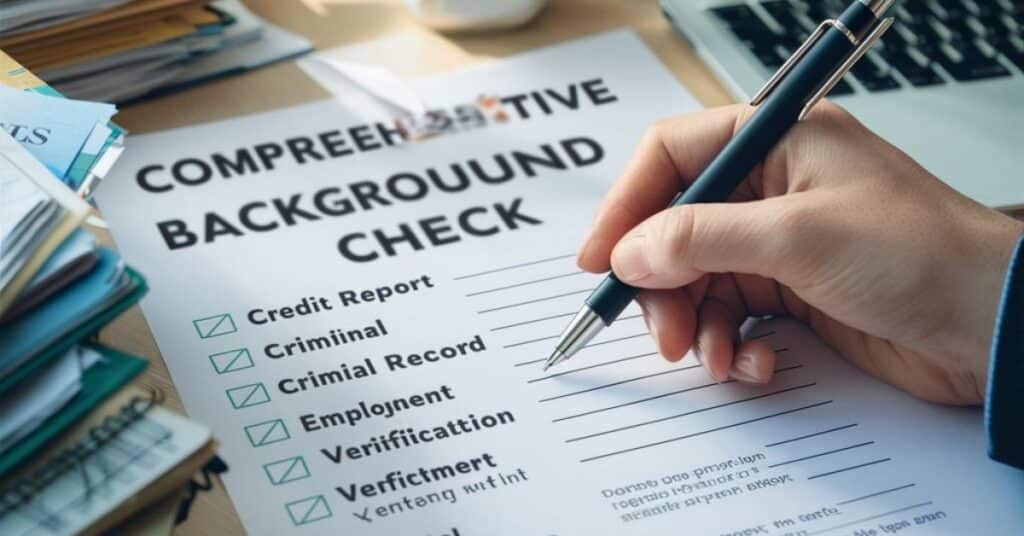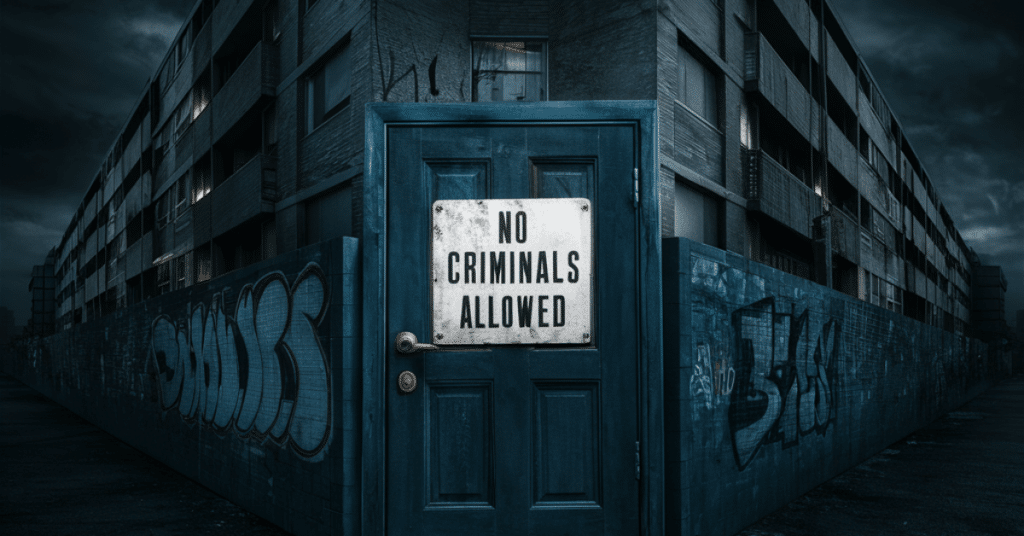Learn if apartments can reject you for misdemeanors and discover tips for success in securing housing. Understand the impact of misdemeanors on rental applications and how to navigate the process effectively.
Wondering if misdemeanors can affect your apartment application? Learn about the potential impact and how to overcome hurdles. Discover essential tips for navigating the rental process successfully despite past offenses. Can an apartment reject you for misdemeanors? Tips for Success
Landlords often consider misdemeanors during the application process and may reject applicants based on them. However, there are strategies you can use to improve your chances, such as being honest about your past and providing strong references. By following these tips, you can increase your likelihood of success in securing an apartment despite past misdemeanors.
Can an Apartment Reject You for Misdemeanors?
An apartment can reject you for misdemeanors. Misdemeanors are minor criminal offenses, but they can still impact your ability to rent an apartment.
Landlords often conduct background checks, and if they find misdemeanors on your record, they might reject your application.
Landlords have the right to reject tenants based on their discretion and the information they find during the screening process.
They may consider factors like the type and severity of the misdemeanor, how recently it occurred, and whether it poses a potential risk to the property or other tenants.
To increase your chances of being approved for an apartment, it’s essential to be honest about your criminal history upfront.
You can also offer explanations or provide character references to demonstrate that you’re a responsible and trustworthy tenant despite past mistakes.
What’s involved in a Background Check for an Apartment?
A background check for an apartment involves looking at your rental history. This includes where you lived before and if you paid rent on time.
They check to see if you caused any damage or issues in your previous rental. Your income and employment history are also reviewed.

This helps landlords ensure you can afford the rent. Your credit score is another important part of the background check. Landlords want to know if you manage money responsibly.
They may also check for any criminal history. This helps them make sure their property and other tenants will be safe.
In addition, landlords might contact your references. These could be previous landlords or personal references. They want to hear about your behavior and reliability.
Overall, a background check helps landlords make informed decisions about who they rent to. It ensures a safe and secure living environment for everyone involved.
Understanding Apartment Background Checks
Understanding apartment background checks is crucial when looking for a new place to live. These checks help landlords assess a tenant’s reliability and potential risk. They typically involve verifying employment history, checking credit reports, and examining rental history.
For tenants, knowing what landlords look for in these checks can help prepare necessary documents and improve their chances of approval. Providing accurate information and addressing any concerns upfront can make the renting process smoother.
Understanding apartment background checks ensure both landlords and tenants can find suitable housing arrangements that meet their needs and expectations.
Read this blog:https://businessnexa.com/can-you-rent-an-apartment-while-on-another-lease/
Key Components of Background Checks
Background checks involve several key components. Firstly, they typically include a criminal record check. This aspect examines an individual’s history to identify any past criminal activities or convictions.
Employers and organizations often conduct this check to ensure the safety and security of their workplace or community.
Secondly, background checks commonly involve verifying an individual’s employment history. This step confirms the accuracy of the information provided on a resume or job application. Employers want to ensure that candidates have the experience and qualifications they claim, enhancing their confidence in hiring decisions.
Lastly, education verification is another crucial component of background checks. This process confirms the academic credentials of an individual, such as degrees or certifications claimed on their resume.
Verifying education helps employers assess a candidate’s qualifications and ensures they possess the necessary skills for the job. Overall, these key components collectively contribute to the thoroughness and reliability of background checks in various contexts.
Preparing for a Background Check
Preparing for a background check is important for many reasons. First, gather all necessary documents, like identification and proof of address. Then, review your personal history, ensuring accuracy and honesty. Next, anticipate questions about your education, employment, and criminal record.
Finally, be ready to discuss any discrepancies or issues that may arise. Taking these steps helps ensure a smooth background check process and increases your chances of success.
What Types of Crimes Prevent You from Getting an Apartment?
Certain crimes can stop you from getting an apartment. For instance, violent offenses like assault or robbery might make landlords hesitant. Drug-related crimes, such as trafficking or possession, can also be a red flag for property managers. Additionally, sexual offenses like harassment or assault could lead to denial of housing.

Landlords often consider the safety of their tenants. Crimes involving violence or drugs may suggest a potential threat to the community. Sexual offenses raise concerns about the well-being of other residents, particularly if there are families or vulnerable individuals in the building.
In some cases, landlords may conduct background checks to screen for criminal history. This helps ensure a secure and peaceful living environment for all tenants. Understanding the types of crimes that could impact your housing eligibility is important when applying for an apartment.
Violent Crimes
Violent crimes are actions that cause harm or threat of harm to others. These crimes include assault, robbery, rape, and murder. They often result in physical or emotional trauma for both the victims and their families.
The consequences of violent crimes can be devastating, leading to injuries, loss of life, and psychological scars. Communities affected by such crimes may experience fear and insecurity, affecting their sense of safety.
Prevention efforts, such as education, community policing, and access to mental health services, are crucial in reducing the incidence of violent crimes and creating safer environments for everyone.
Drug Offenses
Violent crimes are actions that cause harm or threat of harm to others. These crimes include assault, robbery, rape, and murder. They often result in physical or emotional trauma for both the victims and their families.
The consequences of violent crimes can be devastating, leading to injuries, loss of life, and psychological scars. Communities affected by such crimes may experience fear and insecurity, affecting their sense of safety.
Prevention efforts, such as education, community policing, and access to mental health services, are crucial in reducing the incidence of violent crimes and creating safer environments for everyone.
Property Crimes
Property crimes involve stealing or damaging someone else’s belongings. This can include theft, burglary, vandalism, and arson. These crimes often cause financial loss and emotional distress to the victims.
Examples of property crimes include stealing a bike, breaking into a home to steal valuables, spray-painting graffiti on walls, or setting fire to a building. Such actions not only harm individuals but also disrupt communities and can lead to distrust and fear.
Law enforcement works to prevent these crimes and hold offenders accountable to ensure safety and security for everyone.
Financial Crimes
Financial crimes are illegal activities that involve deceit, fraud, or manipulation for monetary gain. These crimes can take various forms, including embezzlement, money laundering, and identity theft.
Individuals or organizations may engage in financial crimes to exploit loopholes in financial systems, deceive investors, or evade taxes. Such actions not only harm victims financially but also erode trust in the integrity of financial institutions and markets.
Governments and law enforcement agencies employ stringent measures to combat financial crimes, including implementing regulations, conducting investigations, and prosecuting offenders.
Financial institutions also play a crucial role by implementing robust security measures and monitoring transactions to detect and prevent illicit activities.
Public awareness and education about the risks associated with financial crimes are essential in fostering a vigilant society that can identify and report suspicious activities, ultimately contributing to a safer and more secure financial environment for everyone.
How Landlords Might Evaluate Applicants with Misdemeanors
When landlords consider tenants with misdemeanors, they often look at the nature of the offense. Minor misdemeanors, like traffic violations, might not concern them as much.
They also assess the applicant’s rental history and references. A positive rental history can outweigh past misdemeanors.
Additionally, landlords may consider the time since the misdemeanor occurred. If it’s been several years and the applicant has demonstrated responsible behavior since then, they may be more willing to overlook it.
However, repeated or recent offenses could raise red flags for landlords, as they prioritize maintaining a safe and trustworthy community for all tenants. Communication and honesty from the applicant about their past can also influence a landlord’s decision positively.
How to Get an Apartment If You Have Misdemeanors
If you have misdemeanors and want to rent an apartment, start by being honest. Tell the landlord about your past mistakes. Next, offer to explain the circumstances surrounding your misdemeanors. This shows responsibility.
Additionally, gather strong references. Ask previous landlords or employers to vouch for you. A good reference can outweigh a past misdemeanor.
Finally, consider offering a larger security deposit. This can reassure the landlord of your commitment to being a responsible tenant.
Remember, finding an apartment with misdemeanors might be challenging, but it’s not impossible. By being honest, providing strong references, and offering a larger security deposit, you can increase your chances of securing a place to live.
Frequently Asked Questions
Can an apartment reject you for misdemeanors?
Landlords have the right to reject applicants with misdemeanors based on their rental criteria and policies.
How can I increase my chances of success despite having misdemeanors?
Be honest about your past, offer explanations if necessary, provide strong references, and consider offering a larger security deposit.
Will disclosing my misdemeanors upfront make a difference?
Yes, being upfront about your misdemeanors demonstrates honesty and responsibility, which may positively influence the landlord’s decision.
Can I appeal a rejection due to misdemeanors?
While some landlords may reconsider with additional information, ultimately, their decision is often final based on their rental criteria.
Conclusion
In conclusion, while having misdemeanors can potentially lead to rejection from rentals, there are steps you can take to increase your chances of success.
Being honest about your past, providing explanations if needed, offering strong references, and considering a larger security deposit can all help sway a landlord’s decision in your favor. Disclosing misdemeanors upfront demonstrates integrity and responsibility, which landlords may value.
However, it’s important to remember that each landlord’s policies vary, and some may still choose to reject applicants with misdemeanors. Despite this, persistence and diligence in your search can eventually lead you to find a landlord willing to give you a chance.
By following these tips and remaining proactive, you can navigate the rental application process more effectively, even with past misdemeanors.

Alexander K. Barry, an experienced author with five years in business, explores the intricate dynamics of entrepreneurship, management, finance, and innovation through insightful narratives and practical wisdom.







